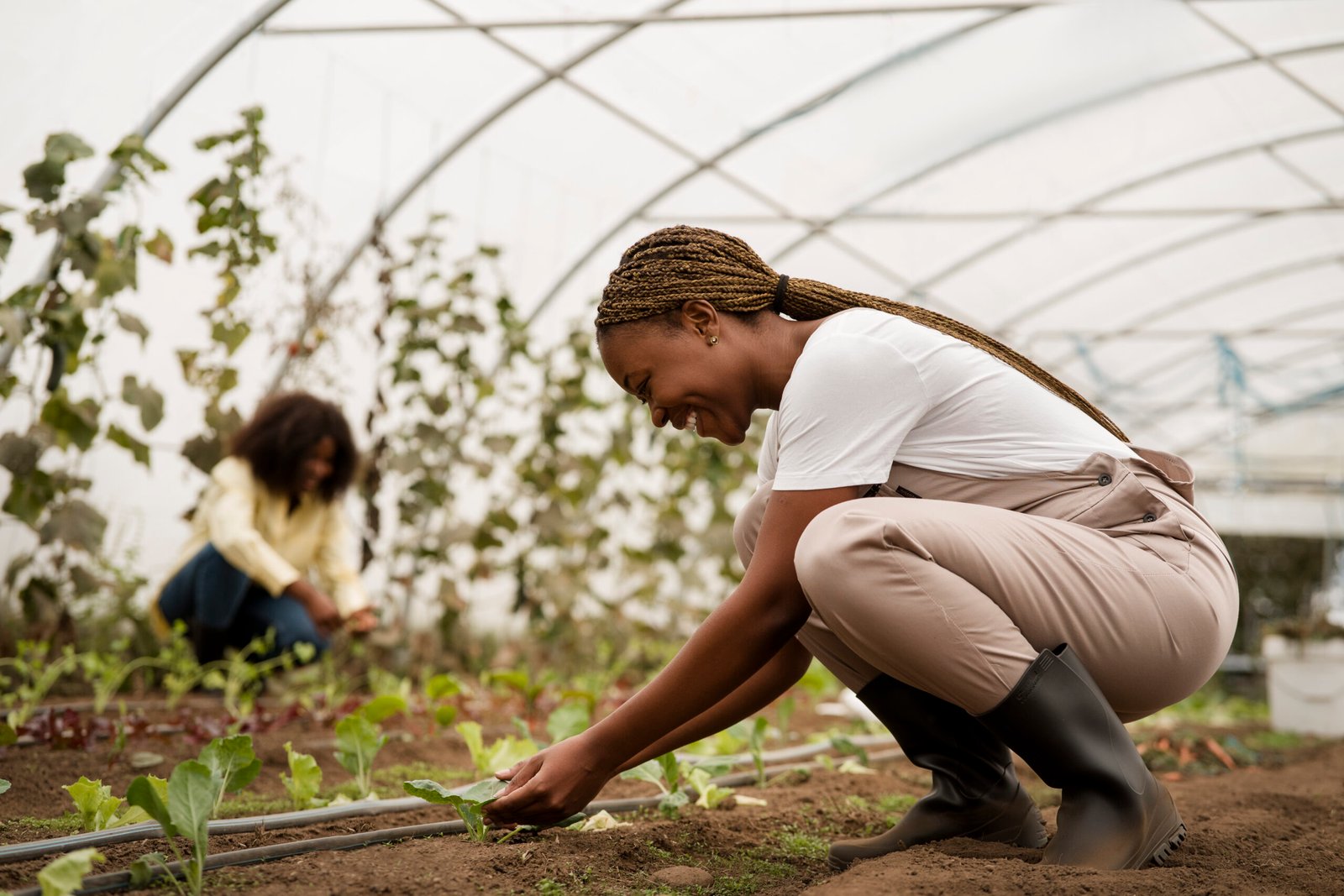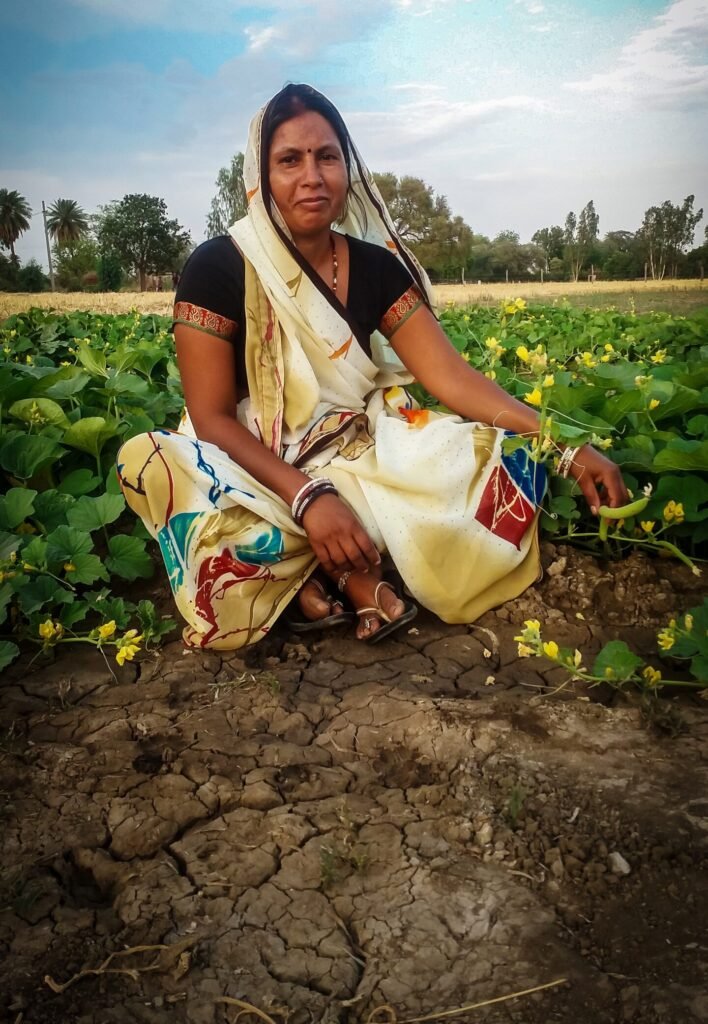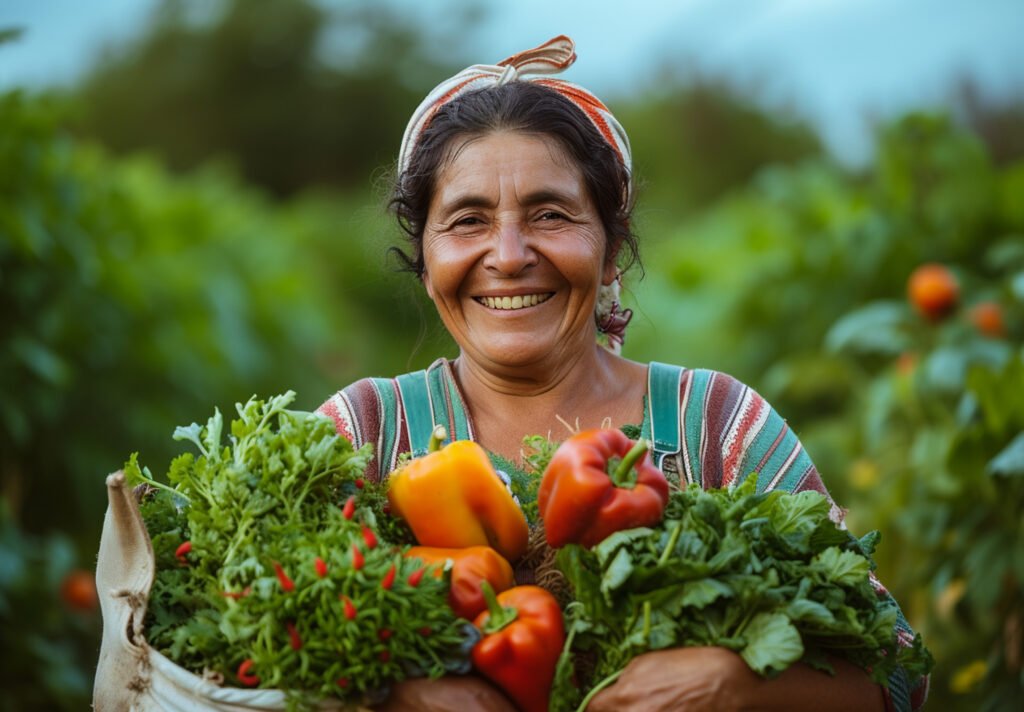Latest News
Women Farmers Revolutionizing Agriculture Through Cooperatives and Sustainable Practices

Overview of the Blog
Through cooperatives and environmentally friendly methods, women farmers are spearheading a revolution in agriculture that promotes food security, economic empowerment, and environmental sustainability. They can obtain training, financial assistance, and improved market prospects by establishing farming cooperatives. In addition, women are leading the way in climate-resilient practices, water conservation, agroforestry, and organic farming. Their endeavours support female parity, leadership opportunity, and economic expansion. A more equitable and sustainable agricultural future may be ensured by sustained support and investment, even in the face of obstacles like financial and land ownership limitations.

Women farmers are playing a pivotal role in transforming agriculture by embracing cooperatives and sustainable farming practices. Across the globe, especially in rural communities, women are leading farming initiatives that not only boost local economies but also ensure food security and environmental sustainability. Through collaboration, innovation, and resilience, women-led cooperatives are reshaping the agricultural landscape, creating a more inclusive and sustainable future.
The Development of Farming Cooperatives Run by Women
Farming cooperatives are becoming a potent instrument for agricultural sustainability and economic empowerment. In order to improve their access to resources, funding, training, and markets, women—who are frequently marginalized in conventional agricultural systems—are increasingly establishing cooperatives. Small-scale female farmers may combine their resources, exchange information, and bargain for higher crop prices thanks to these cooperatives.

Among the main advantages of women-led farming cooperatives are:
Financial assistance: Members of cooperatives have access to government subsidies, agricultural grants, and microloans.
Increased market reach: Women farmers may sell their goods jointly and acquire more negotiating leverage by banding together.
Training and knowledge exchange: Members get instruction in sustainable agricultural methods, business management, and contemporary farming techniques.
Empowerment of the community: By fortifying social bonds and support networks, these cooperatives promote resilience and group development.
Sustainable Methods Guided by Female Farmers
The foundation of women-led agricultural ventures is sustainability. Women farmers are making sure that their methods help their communities and the environment by using eco-friendly farming methods. Among the most successful sustainable agricultural methods that women have embraced are:
1. Growing crops organically
Instead of using conventional pesticides and fertilisers, many women-led cooperatives are switching to organic farming. This method produces better food alternatives, improves soil fertility, and lessens environmental harm.
2. Permaculture and Agroforestry
Incorporating trees, crops, and cattle into a single farming system contributes to increased biodiversity, healthier soil, and more revenue streams from dairy, fruits, and wood.
3. Methods for Conserving Water
Women farmers are leading the way in watershed management, drip irrigation, and rainwater collection. By optimising water usage, these techniques lessen reliance on unpredictable rainfall and increase crop drought resistance.
4. Reviving Indigenous Crops and Preserving Seeds
To ensure biodiversity and food security for future generations, a number of women-led projects concentrate on conserving heritage seeds and restoring traditional crops.
5. Agriculture That Is Climate-Resilient
Crop rotation, soil conservation, and farming powered by renewable energy are examples of climate-smart agricultural practices that may be used to improve production and lessen the consequences of climate change.
Impact of Women in Agriculture on the Economy and Society
1. Empowerment of the Economy
Women farmers are becoming financially independent via sustainable agricultural practices and cooperative leadership. They support regional economic growth, local job generation, and family income. Profits are frequently reinvested by cooperatives in infrastructure, healthcare, and educational initiatives.
2. Nutrition and Food Security
In order to guarantee food availability, diversity, and nutrition, women farmers are essential. Families and communities eat better thanks to their emphasis on organic and varied crops.
3. Social Equity and Leadership
Women overcome gender inequalities in agriculture, take on leadership responsibilities, and engage in decision-making through cooperatives. Increasing the number of women in farming policy contributes to the development of more inclusive agricultural systems.
Obstacles and the Path Ahead
Notwithstanding their advancements, women farmers continue to encounter obstacles such restricted access to financial services, gender bias in agricultural legislation, and limited land ownership rights. Governments, non-governmental organizations, and the corporate sector must:
- Put laws into place that promote women’s rights to inherit and own land.
- Funding and training opportunities for women in agriculture should be increased.
- Encourage gender-neutral agriculture policies and initiatives.
Conclusion
In terms of sustainability, economic empowerment, and agricultural innovation, women farmers are leading the way. In order to ensure long-term food security, environmental protection, and rural development, they are revolutionising traditional agricultural paradigms through cooperatives and environmentally friendly methods. In addition to advancing gender equality, assisting and funding women-led farming projects paves the way for a more resilient and sustainable agricultural future.






















